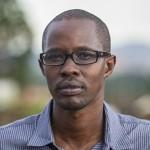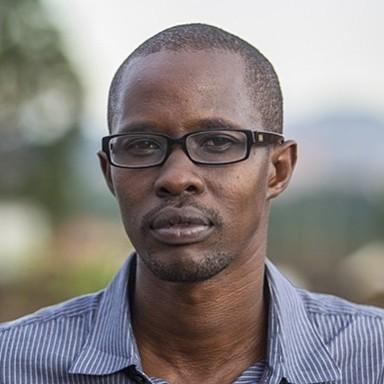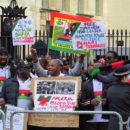Uganda: US sanctions will hurt NGOs already operating in difficult environment – By Angelo Izama

 Since last year when European and American donors started moving their money around, first due to the daylight robbery of these funds by civil servants (including the government’s own money), and then after the passing of the Anti-Homosexuality Act, many programs have been affected. When the donors sneeze, it’s the NGO’s that catch a cold.
Since last year when European and American donors started moving their money around, first due to the daylight robbery of these funds by civil servants (including the government’s own money), and then after the passing of the Anti-Homosexuality Act, many programs have been affected. When the donors sneeze, it’s the NGO’s that catch a cold.
For the so-called “˜governance NGOs’, the US sanctions spell a different kind of infection. Since 2011, the government in Kampala, like other African governments, has been wary of the role of NGOs in mobilizing political protest. Many have armed themselves with stronger legal controls such as the Public Order and Management Act of Uganda, and an arsenal of other tools to monitor and control the activities of externally funded charities.
Since the appointment of the former army commander Gen Aronda Nyakairima to the Ministry of Internal Affairs, many governance NGOs expected a crackdown. General Aronda is not alone. The head of police, Kale Kayihura, is a US-educated army general with close links to the highest levels of the government.
But unlike the government which has a hierarchy, if a poorly functioning one, with which it can deal with NGOs, the response from the charities is not coordinated. A number of break-ins at the offices of prominent NGO’s such as the Human Rights Network have been privately blamed on state actors. Most NGO leaders would rather work their social networks to come “to an understanding” with government institutions or the minister himself; rather than confront the increasingly tense operating environment. This strategy is not without logic. Local staff recognise and understand the existence of Uganda’s second government; the military establishment and its growing influence over the state.
Just days before Washington announced its recent raft of sanctions, President Yoweri Museveni sparked a public debate when he announced that the Ugandan army would directly supervise billions of shillings in the government’s response to improving agriculture. This was prior to the reading of the national budget, which has been hobbled by lower than expected tax revenues and aid cuts. Not surprisingly, the defence budget (the bulk of which is classified) will be the biggest for 2014/15.
The place and role of the Ugandan military in public affairs requires another article. But suffice to say, the political settlement in Uganda after the end of the civil war around 1986 was that an armed movement won the state. In the early days after that revolution, military officers were directly part of the civil service. However, and largely owing to the influence of western donors, the military retreated as Uganda “˜democratized’. The country’s leading opposition figures like Dr. Kizza Besigye (a retired Colonel) and Mugisha Muntu (a retired General) are former army officers.
The recent re-emergence of the military in state affairs has various roots, but in a climate where the state feels that it is under attack (for example, through sanctions), it’s a cause of concern for NGO leaders. A new bill under General Aronda is being drafted to tightly control the operation of NGOs. According to knowledgeable sources, the new law will require NGOs to be centrally registered, ban certain types of activities related to politics, and give more power to local government representatives to intervene in NGO programs.
It is in this environment that the sanctions announced by the US government are operating. It’s an economy of paranoia where the most harm will come from publicly entrenched positions over the Anti-Homosexuality Act from donors and the government. The new sanctions symbolically went after the military establishment. A community-policing program was slashed and an aviation exercise with the Uganda air force scrapped. A day after they were announced the local US Ambassador Scott Delisi skipped a meeting between Embassy heads and the Ugandan Foreign Minister Hon Sam Kutesa (he is the incoming President of the United Nations General Assembly).
The government itself had upped the ante on so-called “˜independence’ from western aid. The narrative on the anti-gay law itself was and still is a corruption of the argument that Africa must inoculate itself from the harmful effects of westernization. For NGOs dealing with this fall-out there are few comforts. The sanctions, for example, are likely to target law-makers; many of whom spoke on the record for the law, the same constituency that is needed to revise the law or repeal it (if that is the aim of the sanctions).
Amongst them is the powerful speaker of the House, Hon Rebecca Kadaga, who has been an ally of a progressive splinter of the ruling NRM party and a strong supporter of the Anti-Homosexuality Act (AHA). But they also include the Secretary General of the main opposition party; the FDC’s Hon Alice Alaso, who also supported the bill and was in running to become Leader of the Opposition in the Parliament. For governance NGOs, lawmakers are the main allies of progressive politics. The sanctions therefore threaten not just to isolate governance NGOs already painted as bogeymen of “˜Western Imperialism’ but also sour the relationship between these NGOs and their main political allies.
Perhaps a more practical path would be for diplomacy between the government and western donors to be less adversarial both publicly and privately. Right now however it does not appear that such a future is forthcoming. In the meantime NGO will have to live (or leave) with the fallout.
Angelo Izama is a Ugandan journalist and former OSI Fellow. He is working on a book manuscript on the politics of Uganda’s newly discovered oil resources.






Anjelo,
Will Sanctions, justify the abuse of minority groups or an attempt to by US to justify democracy!